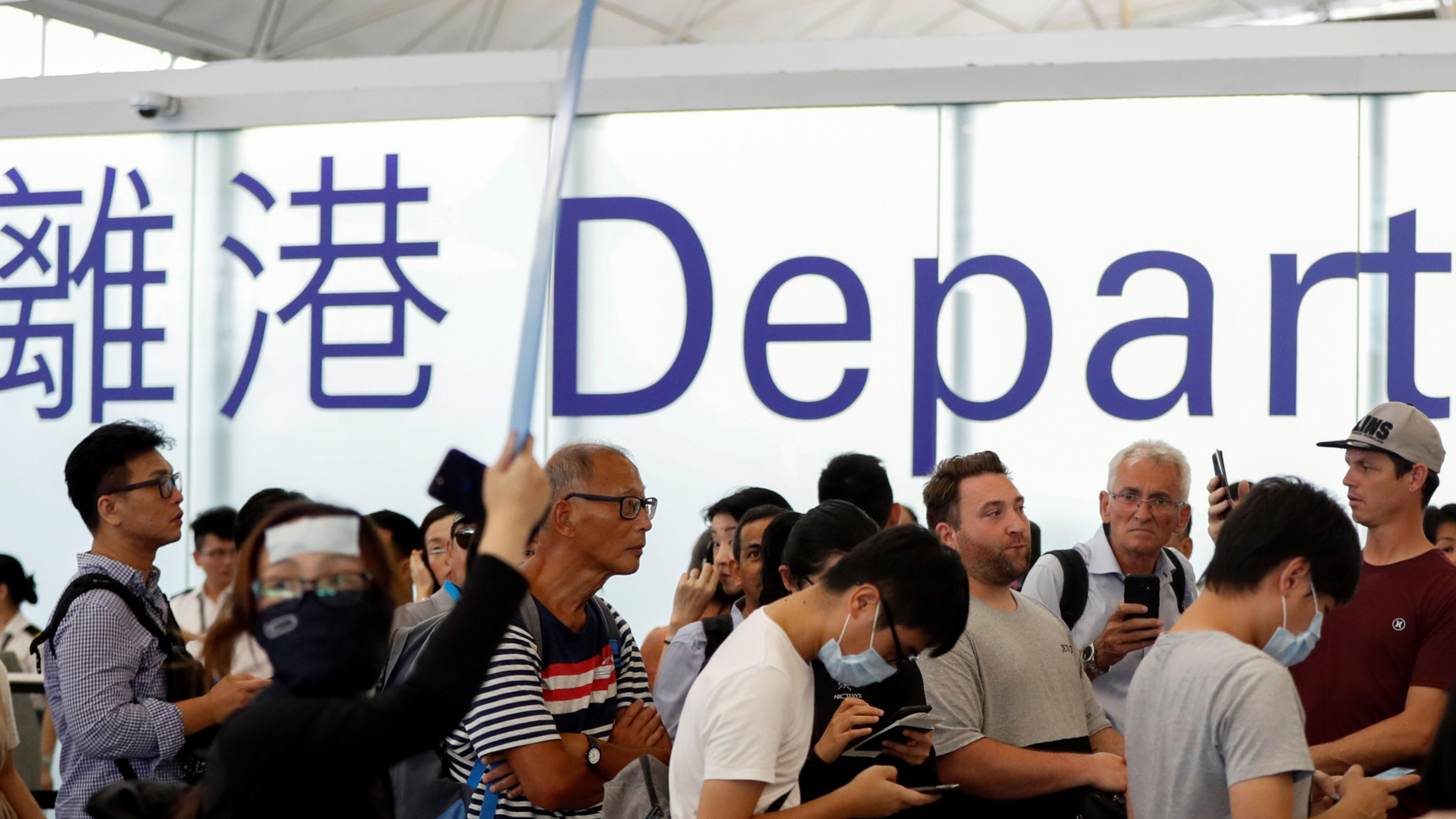
(Photo: CGTN)
On August 12, Hong Kong protesters forcefully occupied the special administrative region's airport in their thousands. The collective turmoil resulted in the city’s transport authority canceling hundreds of flights that evening, leaving disgruntled passengers stranded. As the news emerged, mob ringleader, Joshua Wong took to Twitter and celebrated in broken English: "We successful shut down the airport and force them cancel all flight" – portraying the move as an act of civil disobedience to score political points.
Despite this, he proceeded onward throughout the day to push the narrative of "police brutality" – continuing to paint a picture to the Western media that Hong Kong police, despite infrastructure being repeatedly besieged and blockaded by protesters, are acting brutality "under China’s command" without reason or provocation.
However, not everyone was pleased with the outcome at the airport. A number of travelers voiced disgruntled views to the Western media covering the event. One told the Wall Street Journal: "I had sympathy with the protesters, but I'm carrying my mother's ashes and going back to London for a funeral. This is affecting ordinary people now." A Western visitor commented: "Why take your anger on people who have nothing to do with the politics of Hong Kong? This makes me mad," whilst a Taiwan-based businessman questioned: "How can they win support with such actions?"
Such now is the new reality of Hong Kong. Protesters aiming to continually paralyze public infrastructure and draw in a violent response from the authorities to claim support, are in fact starting to cause major disruption to third parties and frustrate them. As this shows no sign of abating, one must wonder just how much longer will the general public, affiliated with Hong Kong, bare tolerance for this? Although protesters aggressively justify their actions, society will ultimately not accept the growing collateral damage.
How might we understand the tactics of the Hong Kong activists in blockading the airport? The Joshua Wong tweet quoted above makes it quite clear: by forcefully shutting down key areas of public infrastructure, the protesters believe that they can cause major disruption to the life in the city and galvanize people behind their cause. In addition, they further utilize such decisions in order to compel police to forcefully evict them from given premises, which in turn is then utilized to justify claims of "police brutality" which are then rallied uncritically in the Western media.
However, to target something as high profile and critically important as an airport, has clear costs. Notwithstanding the growing economic burden the unrest is piling on the city, the end result of flights being cancelled creates extreme inconveniences for third parties who are not directly participating in the demonstrations. This is in effect a politically-motivated disruption that is hurting people's personal, recreational and business lives.
The demonstrators expect that such a move will somehow rally these affected people to their support. Yet, to personally penalize someone with your activism is not likely to bring them over to your side; it is more likely that people will see the protests as a growing nuisance which is now crossing the line, undermining any merit they might have otherwise had. In the situation, whether the cause is "right" or "wrong" is ultimately irrelevant in the eyes of the public, as people will think and focus in terms of their economic livelihoods and personal priorities. Not everyone wants to be a "martyr."
Given this, the blockade of Hong Kong airport might be said to represent a slow motion car crash which will see their support erode over time. By pursuing collateral damage activism which has aggressively targeted transport infrastructure, including the city's Mass Transit Railway, the demonstrators are eroding their claims to moral legitimacy and self-styled representation of the city as a whole by refusing to respect people’s livelihoods. As they cry out to the Western media, these people truly believe that the world revolves around their depiction of Hong Kong, but in reality it doesn't.


